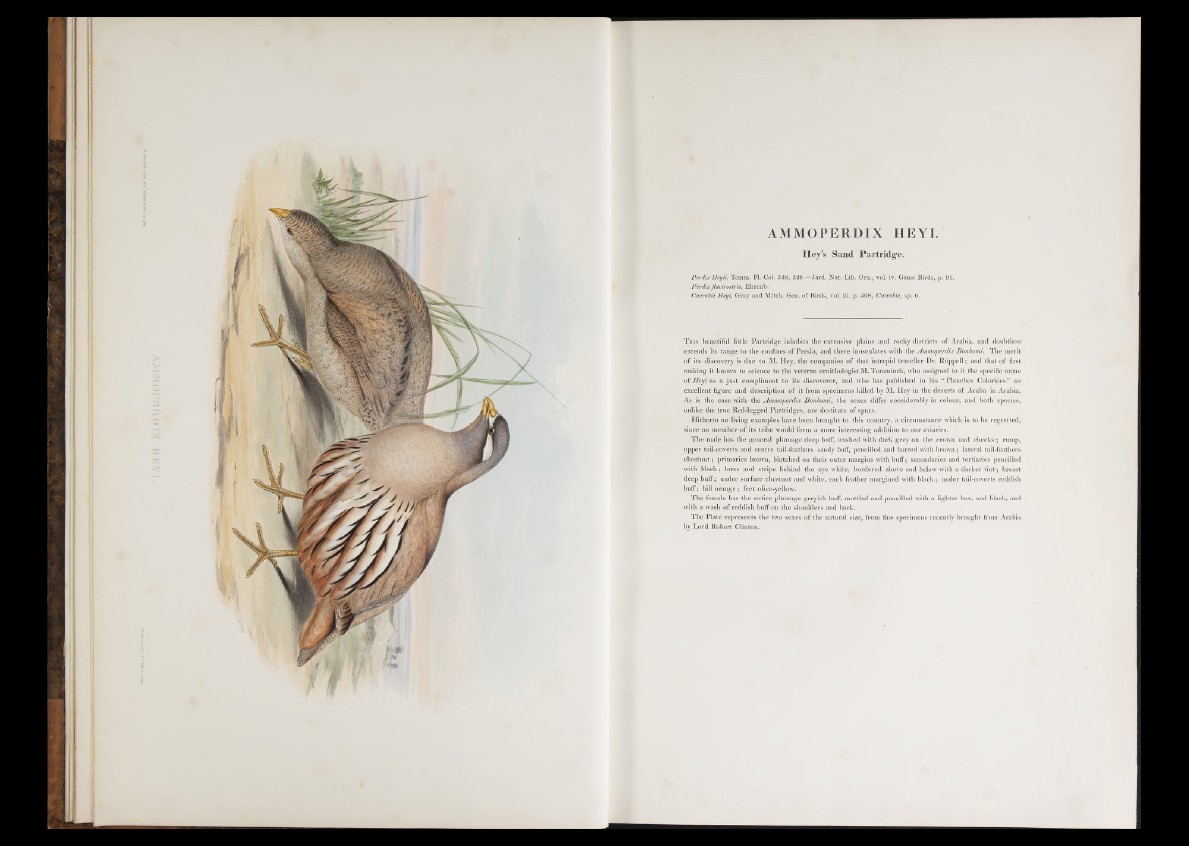
AMMOPERDIX HEYI.
Hey’s Sand Partridge.
Perdite Heyii, Temm. PI. Col. 328, 329.—Jard . Nat. Lib. Orn., vol. iv. Game Birds, p. 91.
Perdite flavirostris, Ehrenb.
Caccabis Heyi, Gray and Mitch. Gen. of B irds, vol. iii. p. 508, Caccabis, sp. 6.
Th is beautiful little Partridge inhabits the extensive plains and rocky districts of Arabia, and doubtless
extends its range to the confines of Persia, and there inosculates with the Ammoperdix Bonhami. The merit
o f its discovery is due to M. Hey, the companion o f that intrepid traveller Dr. Riippell ; and that of first
making it known to science to the veteran ornithologist M.Temminck, who assigned to it the specific name
o f Heyi a just compliment to its discoverer, and who has published in his “ Planches Coloriées” an
excellent figure and description o f it from specimens killed by M. Hey in the deserts o f Acaba in Arabia.
As is the case with the Ammoperdix Bonhami, the sexes differ considerably in colour, and both species,
unlike the true Red-legged Partridges, are destitute of spurs.
Hitherto no living examples have been brought to this country, a circumstance which is to be regretted,
since no member o f its tribe would form a more interesting addition to our aviaries.
The male has the general plumage deep buff, washed with dark grey on the crown and cheeks ; rump,
upper tail-coverts and centre tail-feathers sandy buff, pencilled and barred with brown ; lateral tail-feathers
chestnut ; primaries brown, blotched on their outer margins with buff ; secondaries and tertiaries pencilled
with black ; lores and stripe behind the eye white, bordered above and below with a darker tint ; breast
deep buff ; under surface chestnut and white, each feather margined with black ; under tail-coverts reddish
buff ; bill orange ; feet olive-yellow.
The female has the entire plumage greyish buff, mottled and pencilled with a lighter hue, and black, and
with a wash of reddish buff on the shoulders and back.
The Plate represents the two sexes of the natural size, from fine specimens recently brought from Arabia
by Lord Robert Clinton.